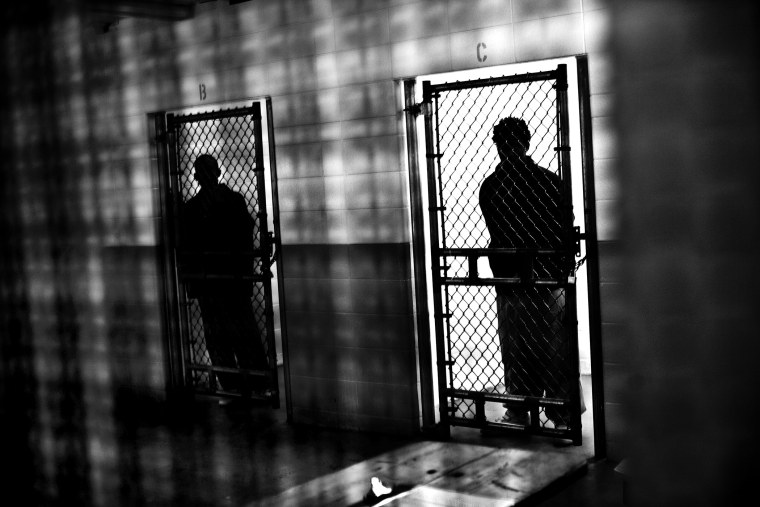Ohio will drastically reduce and eventually eliminate solitary confinement for juveniles in custody of the Department of Youth Services, thanks to an agreement reached between the state and the Department of Justice.
Wednesday’s announcement is the result of a years-long effort to curb constitutional rights violations in Ohio’s youth correctional facilities, which affected many incarcerated young people with mental health issues.
“Overreliance on solitary confinement for young people, particularly those with disabilities, is unsafe and counterproductive,” said Attorney General Eric Holder in a statement. “This agreement will help ensure that incarceration in Ohio's state facilities is humane and that appropriate treatment is provided for young people with mental illness.”
Investigations into the conditions under which children were being held in Ohio began in 2007 and uncovered widespread problems, from inadequate mental health care to solitary confinement to the use of force. While state's Department of Youth Services entered into a consent decree in 2008, it became clear late last year that the state was still using confinement on juveniles in its facilities.
"Ohio was considered to be one of the worst actors in terms of seclusion hours," Shakyra Diaz, policy director of the American Civil Liberties Union of Ohio, told msnbc. The Justice Department's work "really sets a standard and sends a strong message to other juvenile detention facilities around the country."
A Justice Department motion alleged that 229 boys with mental-health problems were kept in seclusion for a total of almost 60,000 hours in the second half of 2013 alone.
Despite the fact that extended solitary confinement of longer than 14 days is considered torture by international human rights groups, solitary confinement is used in prisons across the United States. Some prisoners spend decades in isolation, in small cells for almost 24 hours a day.
Last week, Holder condemned the use of solitary confinement on juveniles nationwide, calling it “a serious impediment to the ability of juveniles to succeed once released.” A 2010 Justice Department report found that more than one third of children surveyed reported being placed isolation.
“We applaud the state for its commitment to rectifying the overuse of seclusion on youth in its custody,” U.S. Attorney Steven M. Dettelbach for the Northern District of Ohio said in a statement.
Another recent report found that solitary confinement is sometimes used to punish female prisoners. According to an American Civil Liberties Union report released in April, some women who reported being raped were placed under solitary confinement by corrections officers.
The agreement announced Wednesday is only one step in an extended process, Diaz told msnbc, but she says advocates will continue to track the work of department of youth services to make sure changes are made and that they stick.
"We’re going to monitor in the same way we have," she said. "Access to health care, access to education. We want to make sure the children are safe and are cared for and not in conditions that are really harmful to them."
